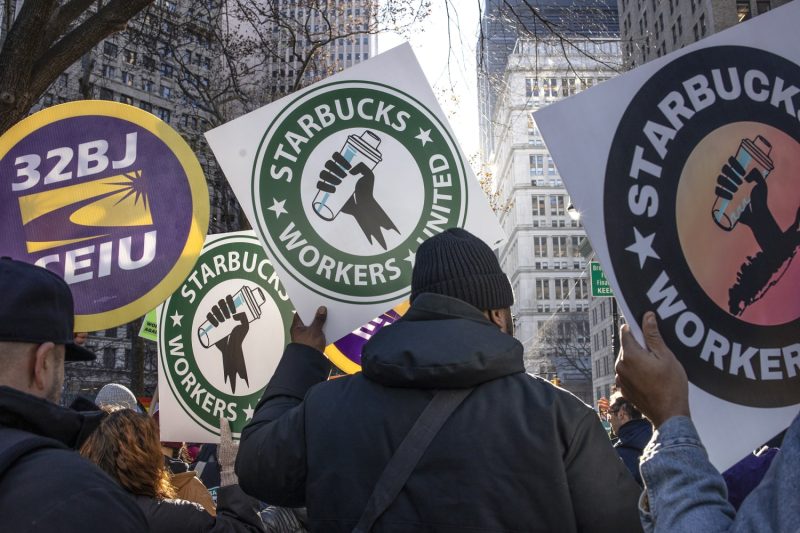
Starbucks’ New CEO Brian Niccol: Embracing Union Collaboration as Talks Progress
In a bold and unprecedented move, the newly appointed CEO of Starbucks, Brian Niccol, has made a commitment to collaborate with the union as negotiations progress. This decision marks a significant shift in the corporate culture of Starbucks and could potentially have far-reaching implications for the wider labor landscape.
Niccol’s willingness to engage with the union demonstrates a recognition of the importance of fostering positive relationships with employees and working towards a more equitable and inclusive workplace. This commitment is particularly noteworthy in an industry that has traditionally been resistant to unionization efforts, with many companies viewing unions as a threat to their bottom line.
The move also signifies Niccol’s desire to differentiate Starbucks from its competitors and position the company as a trailblazer in the realm of corporate social responsibility. By embracing the union and committing to inclusive labor practices, Starbucks is sending a clear message that it values its employees and is willing to work collaboratively towards a more just and sustainable future.
Furthermore, Niccol’s decision to work with the union could have broader implications for the labor movement as a whole. As one of the largest and most recognizable companies in the world, Starbucks wields significant influence over industry norms and practices. By setting a precedent for constructive engagement with the union, Starbucks has the potential to catalyze similar shifts in other companies, leading to a more empowered and organized workforce across the board.
Despite the promising nature of Niccol’s commitment, it is important to note that the road ahead may still be wrought with challenges. Negotiating with the union will require compromise and a willingness to address the concerns and demands of workers. Additionally, maintaining open lines of communication and fostering a culture of trust will be essential in ensuring the success of this new collaborative approach.
In conclusion, Brian Niccol’s decision to work with the union represents a pivotal moment in Starbucks’ history and has the potential to reshape the dynamics of labor relations within the company and beyond. By embracing the union and committing to a more equitable and inclusive workplace, Starbucks is not only elevating its own corporate culture but also setting a new standard for social responsibility in the corporate world. The journey ahead may be arduous, but the rewards of a more empowered and engaged workforce are well worth the effort.
